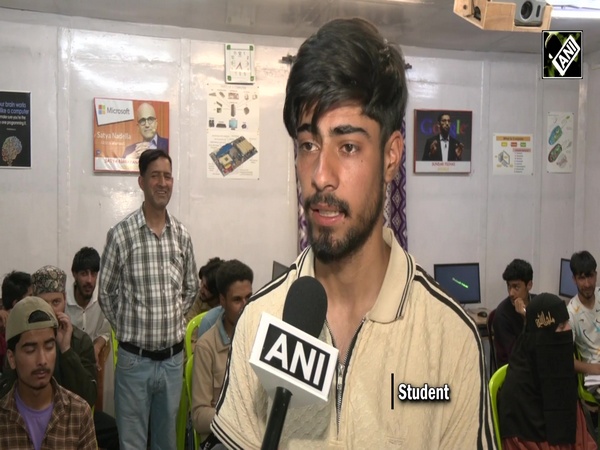India, Bangladesh step up CEPA feasibility study
Feb 22, 2022

By Nivedita Mukherjee
New Delhi [India], February 23 : India and Bangladesh are expected to roll out the process of negotiations for a Comprehensive Economic Partnership Agreement (CEPA) to deepen trade and economic ties during the visit of a high-level team from Bangladesh from March 1-4, 2022 after a Joint Study Group (JSG) for examining the feasibility of the CEPA submitted its recommendations.
The JSG comprising negotiators and trade experts from both sides are likely to start discussions on Wednesday towards finalizing a report which will examine the prospects of the treaty and prepare recommendations over the next few days, a source close to the development told ANI.
The CEPA with Bangladesh is one of the agreements that India is prioritizing. During Prime Minister Narendra Modi's Bangladesh visit in March 2021, the two sides had agreed to enhance trade and the joint statement underscored the need for the removal of non-tariff barriers, need for predictability of trade policies, regulations and procedures.
There is a strong economic reason for India to prioritize the CEPA given the fast-growing trade relationship. In November 2021, Commerce and Industry Minister Piyush Goyal had said India was looking to advance a CEPA with Bangladesh.
Foreign Secretary Harsh Vardhan Shringla has recently observed that the two-way trade has witnessed a quantum jump with exports from Bangladesh, for the first time, expected to cross USD 2 billion this year.
"Early conclusion of a CEPA is vital to enhancing this momentum in trade," he noted at an interaction with a Bangladesh delegation at the 10th India-Bangladesh Friendship Dialogue.
As a build-up to increasingly multifaceted cooperation in the recent few years, Prabir De, Professor, Research and Information System for Developing Countries (RIS), said, "For the first time, Bangladesh's exports to India crossed USD 1 billion mark in 2018-19, a record 52 per cent jump, compared to 2017-18. Bilateral trade between India and Bangladesh has grown steadily over the last decade catapulting Bangladesh to India's biggest trade partner in South Asia. Our bilateral trade potential is USD 40 billion."
The CEPA holds out rich dividends for both. India and Bangladesh already have a goods agreement under the aegis of the 2006 agreement on South Asian Free Trade Area (SAFTA) which govern the tariff regimes for trade.
Under SAFTA, India has granted duty-free quota-free access to Bangladesh on all items except alcohol and tobacco. The missing middle is an agreement on services trade and Bangladesh, with an economy driven predominantly by agriculture and services, would be keen on an agreement that brings in the services component and investment.
A series of pacts and projects signed and finalised during the visit of Bangladesh Prime Minister Sheikh Hasina in October 2019 set the stage for expansion of the bilateral relations and expeditious commissioning of a joint study on the prospects of entering into a bilateral CEPA. A rising and emerging Bangladesh and a prospering India have huge synergies and are good for each other, note experts.
There are plenty of economic dynamics flowing out of Bangladesh's imminent graduation out of Least Developed Country status and India's robust economic fundamentals and proven credentials as Bangladesh's biggest development partner.
Already, three Special Economic Zones have been set up in Bangladesh for Indian investors and Indian companies are investing in various sectors including telecommunications, pharmaceuticals, FMCG and automobiles sectors in Bangladesh. These are seen as offering a significant backdrop to the more intense bilateral engagements in trade and investment that India and Bangladesh are chalking out through the CEPA.



















